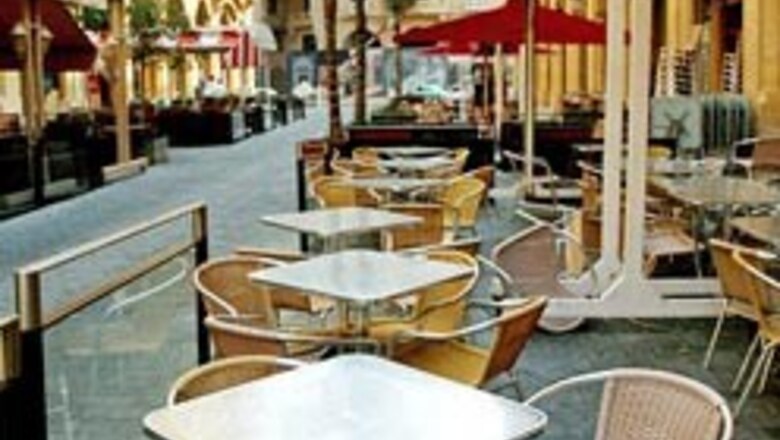
views
Israel: Seldom can the Sea of Galilee have been so flat – at least when it comes to business. In a normal August, there are crowds of people out sailing, swimming and sunbathing.
Now, there is not a boat in sight, the beaches are abandoned, ice cream stalls are closed and the restaurants shuttered. The war between Israel and Hezbollah is taking a huge toll in human life – at least 100 Israelis and 965 Lebanese have been killed in the four-week-old conflict – but it is also doing serious damage to Israel's tourist economy.
Not a single tourist, and barely any locals, venture into the streets of Kinneret, a resort at the southern point of the ancient lake. Abandoned dogs wander confused on deserted roads.
The economic toll on Lebanon is still more devastating, government ministers estimating that up to $20 billion will be needed to rebuild the economy and infrastructure, and that some 900,000 Lebanese have been displaced by Israeli air strikes.
The resorts on the Sea of Galilee and tourist towns and villages across northern Israel are normally thronged with tourists in the summer months, not only Israelis but also visitors from Europe, Asia, Canada and the US.
But since Hezbollah fighters from Lebanon captured two Israeli soldiers in a cross-border raid last month, and responded to Israel's retaliatory air strikes by bombarding northern Israel with rockets, tourists have stayed away in droves.
The 400-room Golden Tulip hotel in Tiberias, the biggest resort on the Galilee, is normally over-booked between June and September, but for the past few weeks it has been empty.
To stem losses of around $100,000 a day, the hotel's management has switched off the lights and the air-conditioning. "There's nothing we can do," says the manager, sitting forlornly in his office staring at an empty register.




















Comments
0 comment